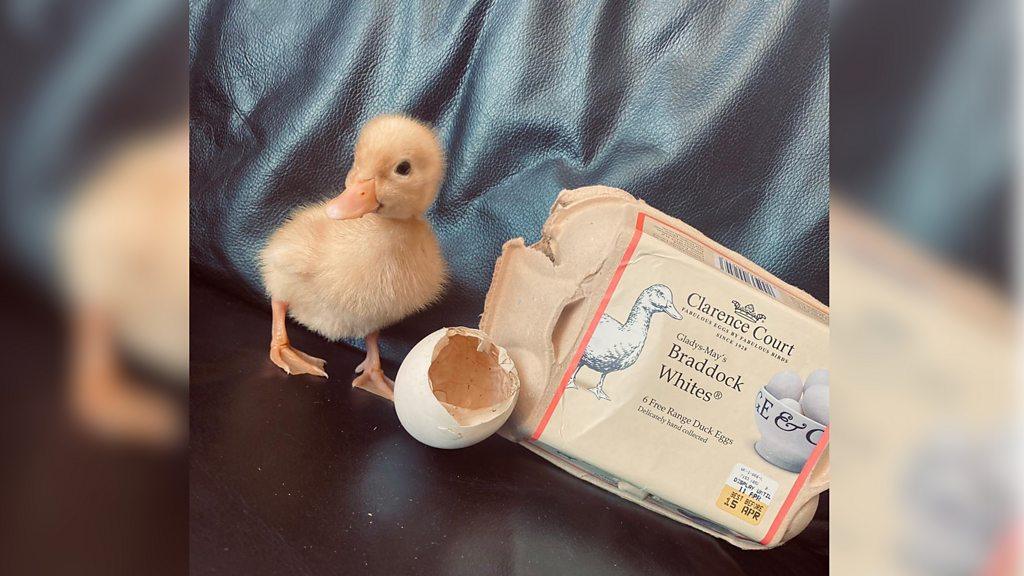Rare white magpie spotted in Pembrokeshire in 'special' moment
- Published
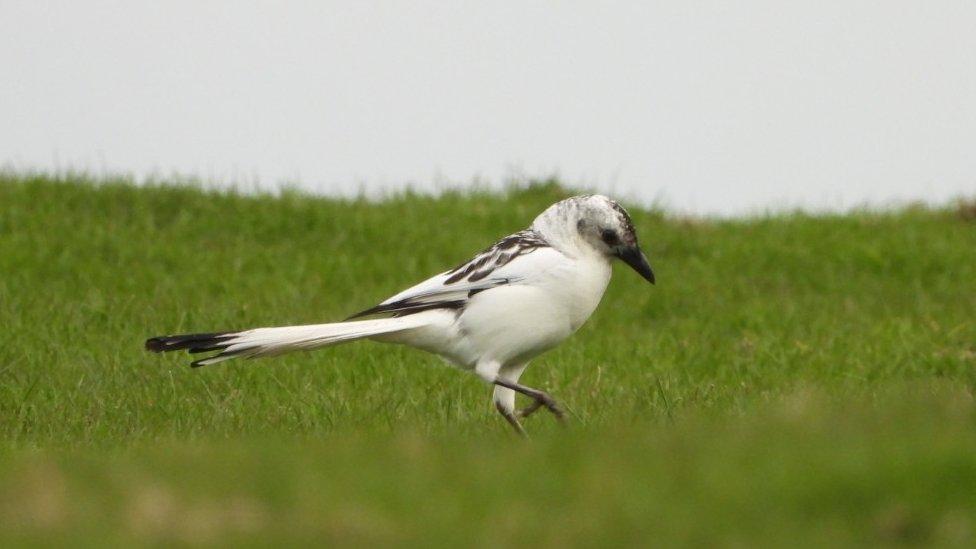
This rare white magpie was snapped by Terry Wright in Pembrokeshire
A rare white magpie was spotted among a group of the more common kind - showing birds of a feather don't always flock together.
Amateur photographer Terry Wright photographed the creature, which he nicknamed Joy, in Pembrokeshire earlier this month.
The bird is leucistic, which means it lacks pigment in its feathering.
The Welsh Ornithological Society said the bird was very unusual.
The pictures were taken in Fishguard on 9 March.
Mr Wright, from Abercych, said capturing the images left him feeling like "the luckiest man alive".
The 54-year-old has a condition called vitiligo, which has caused pigment loss in parts of his skin.
He said seeing the bird made him feel "a bit more at ease, thinking 'it's not just me'".
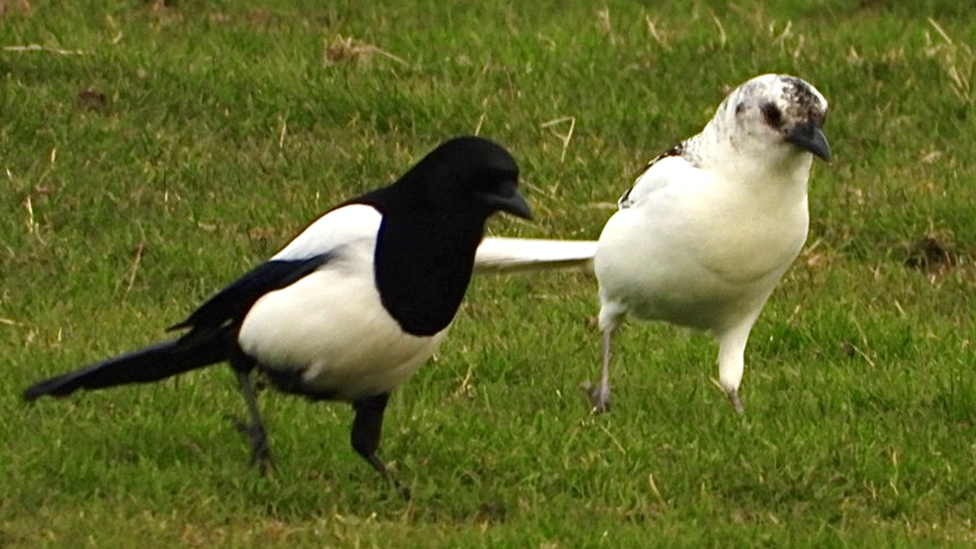
Terry Wright said seeing the bird being accepted as part of the group was "quite lovely"
"To know that it is [a thing] in the animal world as well is quite wonderful, and to see it being accepted as one of the group was quite lovely," he added.
"I kind of felt a connection with it. It was really bizarre, it was somehow meant to be.
"It was quite comforting to see this bird, I felt totally at ease. It was really special."
The bird has been reported to be as rare as one-in-a-million.
But the Welsh Ornithological Society's chairwoman, Anne Brenchley, said while the bird was very unusual, she could not be certain of its scarcity.

Mr Wright, pictured with his spaniel Boy, said he felt a connection with the bird
"You do occasionally see leucistic birds, but I have never seen a magpie," she said.
"It tends to be chaffinches and jackdaws and blackbirds. It is clearly a magpie and the other birds clearly recognise it as a magpie.
"In terms of lifespan of a leucistic bird, because it is a white bird it could be picked off by a predator."
According to the British Trust for Ornithology, leucistic birds lack a substance called melanin which results in them having white feathers.
The organisation said albino and leucistic birds could be distinguished by eye colour, external.
Albino birds have pink eyes, while leucistic birds' eyes are dark.


- Published14 February 2024
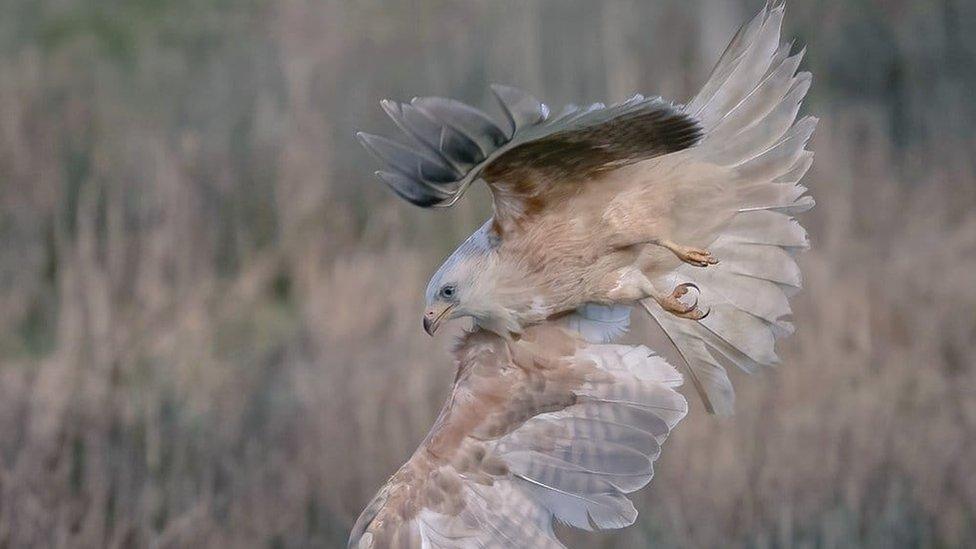
- Published17 March 2023
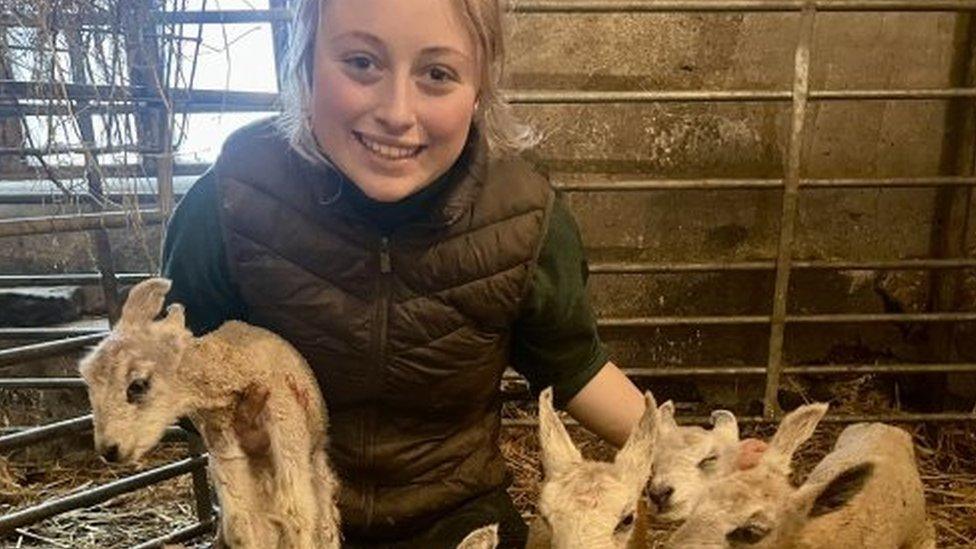
- Published24 May 2023

- Published5 May 2021
